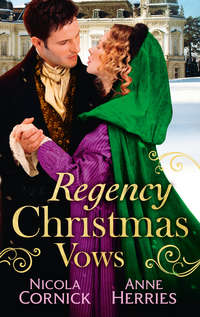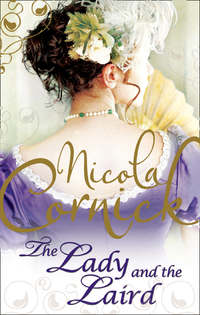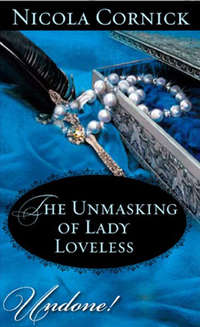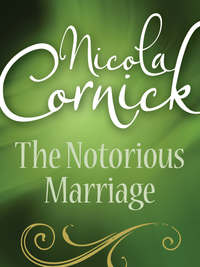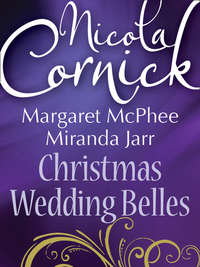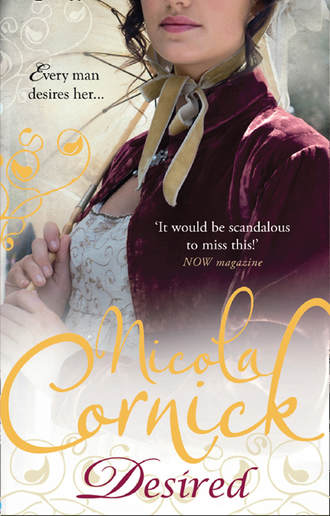
Полная версия
Desired
“A mausoleum, I know.” Rothbury’s voice cut through her thoughts, reading them with uncanny accuracy. “I have yet to decide what to do with it.” He glanced at her. “Did you ever meet my cousin, the previous viscount, Lady Darent?”
“Not that I recall,” Tess said. “I heard he was a prodigious academic, always travelling and adding to his collections.”
Rothbury nodded. “We shared a love of travel, he and I. It makes for a bond between us even though we never met.” He smiled. “I assume that you know the rest of my inherited family though—my great-aunts Ladies Martindale, Borough and Hurst?”
Tess looked up sharply. This was even better than she had imagined. Ladies Martindale, Borough and Hurst were a trio of the most fearsomely upright dowagers in society.
“Lady Martindale is a very high stickler—completely terrifying,” Tess said.
“Even to you?” Rothbury murmured. “I thought you impervious to the disapproval of society.”
He loosed his coat and handed it with a word of thanks to a butler who looked as though he was part of the statuary.
“Would you like Houghton to take your cloak, Lady Darent, or will your stay be of short duration?” There was gentle mockery in his voice.
Tess hesitated. The house was not cold but she felt as though she required the extra layers of protection her cloak gave her, rather like a suit of armour. The conviction beat in her mind that she was about to make a very serious mistake. Despite all of Rothbury’s advantages—impotence, respectable relatives—she could not quite get past her discomfort.
But whilst she had been thinking, he had taken her arm and steered her into the library. The double oak doors shut behind her with a stealthy snap and it felt like another trap closing.
“I apologise if you think me high-handed.” His smile stole her breath, something that happened so rarely to her that for a moment Tess wondered if the tightness in her chest meant that she was ailing. The charm of handsome men generally left her utterly cold.
Rothbury leaned back against the library doors, arms crossed, broad shoulders resting against the panels, another barrier to her escape.
“I am at your service,” he murmured, “whenever you are ready to acquaint me with this business proposition you have.”
Tess’s throat dried. “I wanted …” She groped for the words that had scattered like petals in the breeze. “That is, I thought …”
One dark brow rose quizzically as Rothbury surveyed her confusion.
“I came here—” Gracious, she had lost all her town bronze. This would never do.
“I came here to ask you to marry me,” she finished, with all the finesse of a tongue-tied schoolgirl. “In name only, that is. I wish for a marriage of convenience.”
Mortified, she stood pinned to the spot whilst a burning blush seemed to creep up from her toes to engulf her entire body. It was difficult to see how matters could have gone more painfully awry. She had wanted to be so cool, so composed. She had wanted to be herself, Teresa, Dowager Marchioness of Darent, poised and self-assured. Instead, this man had taken all her confidence and turned it inside out. She should have known not to engage in this dangerous game of using Rothbury for his name and his protection, because any moment now he would call her bluff, accuse her of sedition and very likely have her thrown in the Tower of London.
Rothbury was silent for a very long moment. Finally, when Tess was about to stammer an apology and climb out of the window in her desperation to escape, his shoulders came away from the door and he started to move towards her. Panic gripped her by the throat as he drew closer to her. There was something about his physical presence that was so powerful, so authoritative, that it made her supremely uncomfortable. She did not feel threatened by him in the same way as she had by Brokeby, with that terrible fear that had made her skin crawl. Rothbury, she knew instinctively, was not a man who would ever hurt a woman. Even so his physical proximity filled her with unease.
Rothbury took her chin in his hand and turned her face to the faint light that penetrated the room from the long windows. Tess tried to remain still beneath his touch although the impulse to break away from him was strong. No one touched her. Ever.
“An extraordinary suggestion,” he murmured. “A marriage in name only. Why would you wish for that?” He allowed his hand to fall and Tess felt the relief swamp her, heady as wine, enough to turn her dizzy for a brief moment. Rothbury took a step away from her and then turned sharply back on his heel.
“It was not a rhetorical question,” he said.
Tess jumped. “Oh!” Her mind was a blank. Why had she not anticipated that Rothbury might ask that question—and a great many more difficult questions besides? She had hurried off to proposition him without laying the groundwork first. She should have realised that he was not the kind of man, like Darent before him, to accept such an arrangement without debate.
Rothbury was still watching her with one eyebrow raised in an odiously quizzical manner. And her mind was still blanker than a blank canvas.
“No doubt you will share your reasons with me before too long,” he said, still in the same gentle drawl. “Meanwhile, I have another question. This may seem impertinent, Lady Darent—vulgar, even—but I have to ask it.” He smiled. “What exactly is in this for me?”
OWEN HAD HAD A VERY entertaining ten minutes, possibly one of the most unexpected and interesting ten minutes that he had experienced in his entire life. He had received a number of marriage proposals over the course of his thirty-two years. Some had been from enterprising courtesans on the make, others from respectable young ladies seeking to escape the tedium of life in the schoolroom. One had been from a fabulously wealthy princess wanting to run away from an arranged marriage to a fellow royal. None had been as brazen as this proposal of a marriage of convenience from so notorious a widow who collected husbands with a similar reckless abandon to which King Henry VIII had gathered and shed his wives.
Owen had never imagined himself as anyone’s fourth husband. Until ten minutes before, the idea of marriage had been the last thing on his mind. And marriage to Teresa Darent, of all people … It was an absurd notion.
It was a fascinating notion.
What interested him in this moment was why Tess was asking. He had a very strong suspicion that she was playing a game of bluff and double bluff with him; she knew he suspected her of being Jupiter so she had come to defuse the threat he presented to her. Marriage was a hell of a way to do it. He admired her tactics. It was a daring move, risky but brilliant, demonstrating a breathtaking audacity. The decision he had to make was whether he was prepared to play her game, and all Owen’s gambling instincts told him to engage. He had been an adventurer all his life even if he now had the respectable cloak of a viscount’s title and fortune.
Owen had not expressed his doubts about Lady Darent and her role as Jupiter when he had met Lord Sidmouth that morning to discuss the events of the political meeting and riot. He was not sure what had held him silent; lack of evidence perhaps, the fact that he still only half believed it himself, or even a powerful feeling of protectiveness that made him want to defend Teresa Darent rather than condemn her. This last was as inexplicable as it was disturbing. He had no sympathy with the radical cause and he thought Jupiter no more than a dangerous criminal intent on destroying law and order. Yet still he had kept silent; something had held him back.
He was not the only man investigating the Jupiter Club, however. Sidmouth had plenty of men at his disposal—infiltrators, informers and spies as well as his formal investigators. Owen knew it could be only a matter of time before Jupiter was unmasked and the club destroyed. Tess would guess that too. So here she was, seeking protection.
“Most men would see marriage to me as a prize in itself and not ask for more.” Tess’s answer to his question was full of disdain. Her chin had come up. Owen repressed a smile. Ten generations of Fenner family pride was in those words. She made him feel as though he had committed a faux pas in even questioning her. Perhaps her previous three husbands had snapped her up before she had finished making the offer. Owen had heard that she had proposed to each and every one of them, that approaching her chosen prey was Tess Darent’s style, whether she had selected a man to be her husband or her lover. She did not wait to be asked. She was the one who did the hunting.
That was the gossip. The truth, Owen thought, was probably a deal more complicated. He was already coming to the conclusion that Teresa Darent was in almost all particulars the opposite of how she appeared.
At the moment, for example, he could tell that she was ill at ease. He sensed the nervousness that beat inside her, a fear that she was making strenuous efforts to hide behind a flawless facade. She had chosen to stand a good distance away from him, by the long windows that looked out across the terrace to the neat garden with its clipped box hedges and yew. The autumn day had taken a long time to brighten that morning and now the grey light was behind Tess, concealing as much as it revealed. Owen could not see her expression at all. She stood straight and still, like a pale flame in a dress of yellow silk that made her the only bright thing in a dull room. The gown should have clashed with the russet of her hair, so cunningly arranged beneath the matching bonnet, and yet it did not. Instead it was a breathtaking contrast, framing her face like a halo of fire. Each item of clothing she had chosen had been for obvious effect, and it worked. Owen knew nothing about fashion and cared less. He had an innate taste and wore his clothes with the sort of careless elegance that his valet deplored. Tess Darent, he thought, deployed her wardrobe like a weapon. She knew the value of appearance and the way it could give you protection as well as confidence.
He walked towards her very slowly, very purposefully, his footsteps ringing on the bare wooden boards of the library floor. There were no deep rugs or carpets here to soften the austerity of the room. Rothbury House had been woefully neglected under his cousin Peregrine, who had been widowed for years and had seldom been in England. All the Rothbury estates were in disrepair and would take thousands to renovate. Marriage to an heiress was an obvious solution, as his aunt Martindale had pointed out. If he wed and produced an heir, she had said, she would settle the Rothbury debts and pay for the estates to be restored.
Lady Martindale would not approve of Tess Darent as a bride. The idea of marrying a woman who would incur his great-aunt’s deepest disapproval pleased Owen, a small act of rebellion when he was hamstrung by so much of his new inheritance. It was not a good reason for marriage. He knew it. Yet it appealed to him.
He stopped when he was no more than a couple of feet away from Tess. Her violet-blue eyes met his very directly. There was now no nervousness in them. Owen wondered if he had imagined the tension he thought he had sensed in her. But no. He felt it again, and saw the way in which she stepped back, almost imperceptibly, to put more distance between them. She was withdrawing from him. Evidently she was not comfortable with physical proximity. Which was very odd indeed if the rumours about her were true.
“I doubt most men would see marriage to you as a prize if they are not permitted to sleep with you,” Owen said drily. “Forgive my plain speaking,” he added, seeing the flash of anger in her eyes. “I always find it best to be quite frank in discussions of an intimate nature.”
“I have never thought of marriage as an intimate matter,” Tess snapped. The pink colour had come into her face now. “I fear you have a sadly colonial view of the institution, Lord Rothbury. Marriage in the ton is for profit alone. You profit from my beauty and connections and I gain the protection of your name.”
“Forgive me again,” Owen said, “but is that an equal bargain?”
“No,” Tess said, “the bargain favours you by far. I would be the one compromising by marrying a mere viscount.”
“One does not need to possess a thoroughbred horse to admire its beauty,” Owen said.
Tess raised a haughty brow. “I beg your pardon? Is one of us an animal in your analogy?”
“And as for connections in the ton,” Owen continued, “I do not value them.”
“That is short-sighted of you,” Tess said. “So short-sighted I doubt you have the vision to appreciate your thoroughbred.”
Owen smiled. Oh, he appreciated her. She was beautiful enough to turn any man’s head. And at the very least, he thought, if he married her he would never be bored. Conversation with Tess Darent had the astringency of a dose of salts. Though no doubt she would say that a fashionable husband and wife spoke to one another as little as possible and preferably only via the servants.
“And your reputation?” he said. “Many men might balk at taking a wife with the sort of reputation for sin one would normally hope for in a mistress.”
Once again he had been brutally frank and he awaited her response with interest. Her defences were so perfectly in place, however, that he could discern not one flicker of emotion in her: no shock, no anger, nothing. She looked him over with that detached blue gaze he was starting to know.
“You,” she said, after a moment, “have a reputation as a pirate and a mercenary soldier. Most women would prefer such a man as a lover rather than a husband.”
Touché.
Owen inclined his head. “I was not a pirate, though I suppose you could say I was a mercenary soldier,” he admitted.
“Whereas I have never been a whore,” Tess said. The coolness of her response made him smile. She certainly had nerve. “And were we to wed,” she continued, “I would behave with the utmost propriety. I am marrying to try to rescue my reputation, so there would be no point in my sinking it further.”
“I feel I must point out,” Owen said, “that I found you climbing out of a brothel window last night.”
Her pansy eyes lit with mockery. “We were not betrothed last night, Lord Rothbury.”
He had to give her credit. She played the coolest hand of anyone he knew. Which was perfectly in keeping with a woman who might lead a secret life as a radical sympathiser, who carried a pistol in her reticule and who might well have been in Mrs. Tong’s brothel for purposes other than a night of debauchery.
He was intrigued. Owen admitted it to himself. He had a low threshold of boredom, the product of a lifetime of constantly moving onward and seeking new challenges. He had gone to sea when he was in his teens and had spent his life exploring, fighting and carving out a future. He liked unpredictability and risk. It was what made him feel alive.
Tess Darent was enough of a challenge for one man for an entire lifetime.
“Of course,” Tess said, very casually, “there is also my fortune. I am accounted very rich indeed.”
That got his attention. Owen realised that he had been vaguely aware that she was a wealthy widow but had no idea whether that meant she was merely plump in the pocket or wildly affluent.
“How rich?” he said.
Once again her blue gaze mocked his directness. “Over one hundred and fifty thousand pounds rich,” Tess said, frank as he. “Is that sufficient to tempt you, my lord, where my other advantages do not?”
Truth was he had already been deeply tempted. Now her words stole his breath.
“Extraordinary how very attractive a lady may suddenly become when she is adorned in gold,” Tess said, seeing his expression. “Now I am become a gift horse, in your analogy, or possibly a goose laying golden eggs.” But for all the dryness of her words there was a flicker of something else in her eyes that looked like disappointment. Owen wondered if she had wanted him to accept her for herself alone. It seemed unlikely that she would care.
“I cannot deny that a fortune of one hundred and fifty thousand pounds is a strong inducement,” he said.
“Well, at least you would never lie to me and pretend you cared more for my charming person than you did for my money,” Tess said, still dry. “You may be famously blunt, Lord Rothbury, but actually I prefer it. It saves trouble in the end.”
“Then perhaps we will deal well together,” Owen said. Their eyes met and he felt a flare of awareness, an attraction that was most certainly for her rather than for her fortune.
“You mentioned that you wished to marry to save your reputation,” he said. He gestured to a chair. “Why don’t you tell me more?”
She hesitated. There was real vulnerability in her face now and it was so unexpected that it touched Owen more than he wanted, more than he had expected. He had wondered if she had been using her desire to repair her reputation as a convenient excuse for marriage but now he saw that she was sincere. The problems she faced, whatever they were, were huge and they distressed her deeply.
“Please,” he said, still waiting for her to take a seat. “You can trust me.” He had moderated his tone before he realised it, gentleness sweeping away his previously rather abrasive frankness. He smiled ruefully to himself. Tess Darent’s skill at disarming a man was formidable. If he were not careful he would soon forget she was a dangerous political renegade and be taken completely off his guard.
This time she sat, perching upright on the edge of one of the hard library seats as though she half expected it to explode beneath her. Given the state of the springs this seemed a distinct possibility. Owen found himself studying the delicate line of her throat and jaw, a delicacy that seemed at odds with the stubbornness of her chin and the determination in her eyes. Tess Darent, it seemed, was all contradiction.
“My late husband, Lord Darent, took out a loan,” she began. A shade of exasperation touched her voice now. “His creditor is demanding payment.”
“Marriage is a rather extreme way to settle a debt,” Owen said, taking the seat across the table from her. “You could try the moneylenders first. And anyway, you have just told me that you are obscenely rich. Surely you can pay?”
“There is nothing obscene about my fortune.” Her tone was hard. “But you misunderstand me, my lord. It is not money Lord Corwen demands.”
“What then?” Owen said. He watched her face and felt a jolt of shock at what he saw there. “You?” he said. The possessive anger caught him unawares as it leapt and burned within him. He leaned forwards. “He wants you in settlement of the debt?”
She was already shaking her head. Her face beneath the brim of the bonnet was shadowed, her expression hidden. “No.” She took a deep breath as though she had to steel herself to force out the words. “He demands payment in the form of marriage to my stepdaughter.” Her face crumpled into disgust and a sort of despair. “Sybil is currently at school in Bath. She is a mere fifteen years old. Corwen wishes to wed her next year on her sixteenth birthday.” She raised her eyes to his. “You should understand that his lordship is seven and forty and that he requires a wife who is biddable and—” a shudder shook her “—innocent. He will take her in return for cancelling the debt.”
Owen felt a rush of revulsion. He stared at her, brows lowered. “But that is grotesque, monstrous. Surely—” He had been going to say that surely it could not be true, but he recognized the words were hollow.
Tess met his eyes. He could see something there that was deeper than abhorrence at Corwen’s behaviour, something of pain and grief that was sharp as an imprint on her soul. He glimpsed it in a second’s brief flash and then the expression was gone and he wondered if he had imagined it.
“Surely you have refused him,” he said.
“Of course.” Suddenly she looked tired. “I have offered to pay the debt in full but he has declined. Instead he threatens to ruin Sybil’s future. A word here and there that, like her stepmother, she is not virtuous….” She shrugged eloquently. “You know how fragile a young lady’s reputation can be, my lord. A debutante’s reputation is not like a lost reticule—it cannot be replaced. Once gone it is lost forever.”
“Corwen can have no grounds to slander her,” Owen said.
Tess shook her head. “Of course not,” she said, very quietly. “But it is my poor reputation that will taint Sybil’s life unless I can prevent it. Corwen will point to me as the worst of bad influences. He will say that I had the upbringing of Sybil for five years, that I am corrupt and that my immoral ways must surely have contaminated her. And he will be believed because people prefer to think the worst.” Suddenly her tone was fierce, ringing with sincerity. “I will never let that happen to Sybil. She deserves better than that. Her father left both his children in my care and I will not fail them.”
Owen got to his feet. He understood now Tess’s earlier pledge to behave with absolute propriety should they wed. She had made her choice: marry, gain a modicum of respectability and protect her stepchildren. To do so she would need to abandon any wild behaviour and become a pattern card of propriety. Owen wondered if she would be able to keep the bargain.
His lips twisted. “You wish me to be your fig leaf, Lady Darent,” he said, “to make you appear respectable.”
Tess laughed, a real laugh full of genuine amusement. Those pansy-blue eyes warmed, full of mischief. It startled Owen to see her in so unguarded a moment. Startled him, but pleased him as well. He found that he wanted to know more of this real Tess Darent away from the bright, brittle pretence. He wanted it a great deal. The intensity of his hunger for it was another shock.
“My fig leaf,” Tess said. “How very picturesque a description, my lord.”
“And how appropriate, since it seems that your clothes are always coming off,” Owen said. “At the brothel, in those paintings by Melton that everyone is talking about …”
The light died from her eyes. “I concede that that is certainly how it appears,” she said. She sounded cold now, lifeless. She shifted on the chair. “The paintings are from a collection belonging to my second husband,” she said. “They were never intended to be on show to the public, but—” she shrugged “—Mr. Melton must make his fortune as he sees fit.”
That shrug, Owen thought, covered more than a little distaste and a healthy dose of anger. Teresa Darent might pretend aristocratic indifference towards Melton and his impudence in making his fortune from her body, but Owen could sense that she had been deeply hurt and offended by it. Once again his protective instincts stirred. He reined them in sharply.
Конец ознакомительного фрагмента.
Текст предоставлен ООО «ЛитРес».
Прочитайте эту книгу целиком, купив полную легальную версию на ЛитРес.
Безопасно оплатить книгу можно банковской картой Visa, MasterCard, Maestro, со счета мобильного телефона, с платежного терминала, в салоне МТС или Связной, через PayPal, WebMoney, Яндекс.Деньги, QIWI Кошелек, бонусными картами или другим удобным Вам способом.


